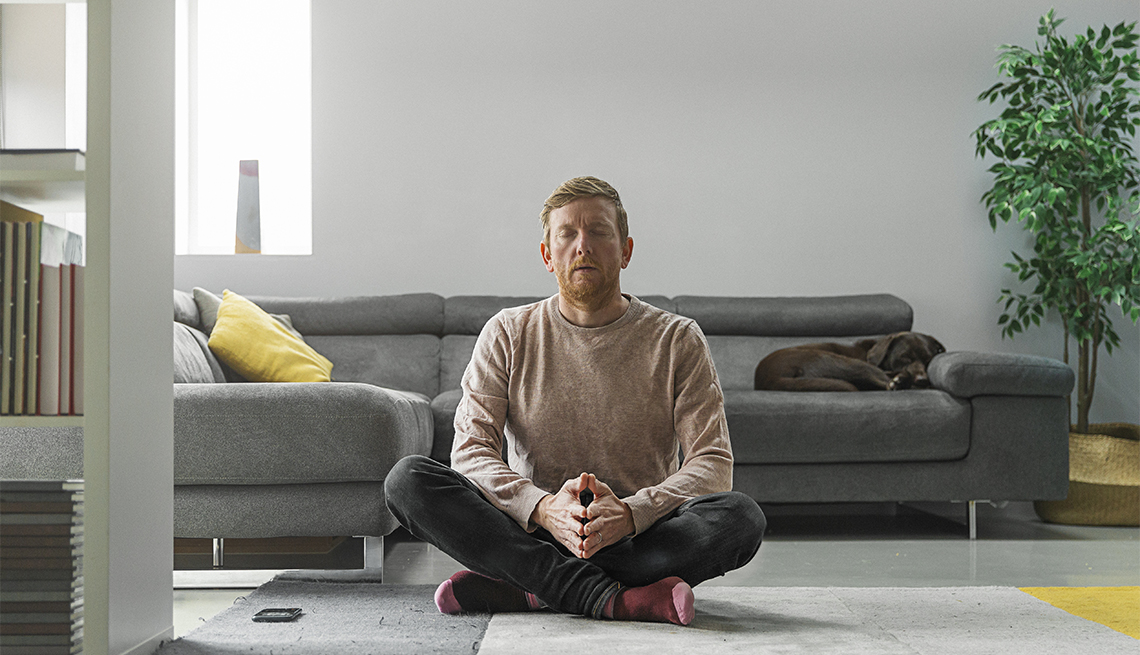AARP Hearing Center
Is your brain feeling ... foggy? You're not just imagining it. “Keeping busy with regular activities and spending time with others are both key to brain health and lowering your risk of dementia — and they're also things most of us are lacking right now,” says psychiatrist Gary Small, director of the UCLA Longevity Center. The good news is there is plenty you can do during this pandemic to keep your brain neurons firing. Here are five things to try.
Stay active
Exercise won't just keep your heart healthy and your weight down as you face lots of time inside — it helps your brain stay in shape, too. “We know that regular aerobic exercise boosts blood flow to your brain, and also increases the size of your hippocampus, the part of your brain that's involved in verbal memory and learning,” explains geriatrician Zaldy Tan, medical director of the UCLA Alzheimer's and Dementia Care Program. His own study, among others, helped uncover the link: “When we performed MRI scans of over 2,000 people over age 60, we found that the more active they were, the bigger their hippocampus,” he says. “Even better, the protective effects were highest in those over age 75, which suggests that it's never too late to start."
You don't need much exercise to see benefits. Walking or cycling just three times a week appears to improve thinking skills after six months in formerly sedentary people over age 55, according to a recent study published in the medical journal Neurology. A heart-healthy diet adds even more benefits: People who followed the DASH (dietary approaches to stop hypertension) diet, an eating plan rich in fruits, veggies, whole grains, lean protein and low-fat dairy, fared even better.
Besides getting in a regular walk (or two) during the day, limit sitting as much as possible to preserve your brain health. Adults ages 45 to 75 who sit for anywhere from three to seven hours each day have a substantial thinning of their medial temporal lobe, which is where the brain forms new memories, according to a 2018 study. “This is one of the types of changes that precede dementia,” says study coauthor Small.
And don't forget resistance training, if you can squeeze it in, Small adds. A 2019 study found that lab rats who “weight trained” (meaning they were trained to climb a 3-foot-high ladder with dumbbells attached) three times a week performed much better on memory tests after five weeks than a control group. “It seems to help reduce some of the brain inflammation associated with dementia,” Small says.



































































